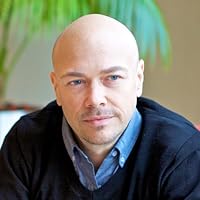Media Corruption Quotes
Quotes tagged as "media-corruption"
Showing 1-5 of 5

“If it’s true that nothing is more potent than an idea, then those who control the media can direct minds en masse.”
― The Orphan Conspiracies: 29 Conspiracy Theories from The Orphan Trilogy
― The Orphan Conspiracies: 29 Conspiracy Theories from The Orphan Trilogy

“The deceptive, glossy media images of faces, bodies and social lifestyles, make us hate ourselves so we will buy a solution to love ourselves once again.”
― Voice of Reason
― Voice of Reason

“Traditional journalism, where reporters deliver information in a balanced and unbiased fashion, is rapidly fading into obscurity. This is especially evident on television where high profile reporters become bigger than the story, delivering news with large dollops of personality and wit – almost as if they are actors.”
― The Orphan Conspiracies: 29 Conspiracy Theories from The Orphan Trilogy
― The Orphan Conspiracies: 29 Conspiracy Theories from The Orphan Trilogy

“We find the same situation in the economy. On the one hand, the battered remnants of production and the real economy; on the other, the circulation of gigantic amounts of virtual capital. But the two are so disconnected that the misfortunes which beset that capital – stock market crashes and other financial debacles – do not bring about the collapse of real economies any more. It is the same in the political sphere: scandals, corruption and the general decline in standards have no decisive effects in a split society, where responsibility (the possibility that the two parties may respond to each other) is no longer part of the game.
This paradoxical situation is in a sense beneficial: it protects civil society (what remains of it) from the vicissitudes of the political sphere, just as it protects the economy (what remains of it) from the random fluctuations of the Stock Exchange and international finance. The immunity of the one creates a reciprocal immunity in the other – a mirror indifference. Better: real society is losing interest in the political class, while nonetheless availing itself of the spectacle. At last, then, the media have some use, and the ‘society of the spectacle’ assumes its full meaning in this fierce irony: the masses availing themselves of the spectacle of the dysfunctionings of representation through the random twists in the story of the political class’s corruption. All that remains now to the politicians is the obligation to sacrifice themselves to provide the requisite spectacle for the entertainment of the people.”
― Screened Out
This paradoxical situation is in a sense beneficial: it protects civil society (what remains of it) from the vicissitudes of the political sphere, just as it protects the economy (what remains of it) from the random fluctuations of the Stock Exchange and international finance. The immunity of the one creates a reciprocal immunity in the other – a mirror indifference. Better: real society is losing interest in the political class, while nonetheless availing itself of the spectacle. At last, then, the media have some use, and the ‘society of the spectacle’ assumes its full meaning in this fierce irony: the masses availing themselves of the spectacle of the dysfunctionings of representation through the random twists in the story of the political class’s corruption. All that remains now to the politicians is the obligation to sacrifice themselves to provide the requisite spectacle for the entertainment of the people.”
― Screened Out
All Quotes
|
My Quotes
|
Add A Quote
Browse By Tag
- Love Quotes 97k
- Life Quotes 75.5k
- Inspirational Quotes 72.5k
- Humor Quotes 43.5k
- Philosophy Quotes 29.5k
- Inspirational Quotes Quotes 27k
- God Quotes 26k
- Truth Quotes 23.5k
- Wisdom Quotes 23.5k
- Romance Quotes 23k
- Poetry Quotes 22k
- Death Quotes 20k
- Happiness Quotes 18.5k
- Life Lessons Quotes 18.5k
- Hope Quotes 18k
- Faith Quotes 18k
- Quotes Quotes 16.5k
- Inspiration Quotes 16.5k
- Spirituality Quotes 15k
- Religion Quotes 15k
- Motivational Quotes 15k
- Writing Quotes 14.5k
- Relationships Quotes 14.5k
- Life Quotes Quotes 14k
- Love Quotes Quotes 13.5k
- Success Quotes 13.5k
- Time Quotes 12.5k
- Motivation Quotes 12k
- Science Quotes 11.5k
- Knowledge Quotes 11k


